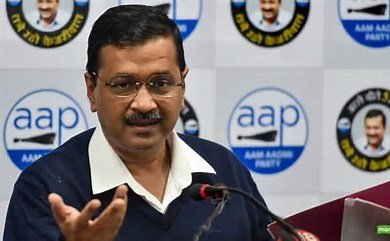In the midst of an ongoing political dispute between the Aam Aadmi Party (AAP) government and the Lieutenant Governor (LG) of Delhi, the central government has introduced an ordinance to set up a permanent authority for matters concerning transfer posting, vigilance, and other incidental issues in the capital city. The authority will be headed by the Chief Minister of Delhi, along with the Chief Secretary and the Principal Secretary (Home) of Delhi. This move comes shortly after the Supreme Court granted the Delhi government executive powers in services matters, including the transfer and posting of officers.
The newly introduced ordinance states that all matters to be decided by the authority will be determined by a majority vote of its members. However, in case of a difference of opinion, the final decision will rest with the Lieutenant Governor. The aim of this step, as mentioned in the ordinance, is to balance the interests of the nation with the democratic aspirations of the residents of Delhi, giving due significance to the will of both the central government and the Government of National Capital Territory of Delhi (GNCTD).
While the ordinance is seen by the central government as a means to promote national interests without compromising on democratic values, critics, including the Delhi government’s lawyer and Congress leader Abhishek Singhvi, have criticized the move. Singhvi referred to the ordinance as an act of a “bad, poor, and graceless loser.” He expressed doubts about the dilution of constitutional principles through ordinances and questioned whether the ordinance would be approved by Parliament.
Delhi Chief Minister Arvind Kejriwal also raised concerns about the motive behind the ordinance, questioning if the central government was conspiring to overturn the Supreme Court’s verdict through this legislative measure. He alleged that the LG was intentionally delaying signing the file related to the Services Secretary, possibly awaiting the introduction of the ordinance.
The introduction of this ordinance has further intensified the already tense relationship between the AAP government and the central government. Supporters of the ordinance argue that it provides a statutory framework to streamline decision-making processes, while critics view it as an attempt by the central government to assert control over the elected government in Delhi.
As the political row continues, it remains to be seen how this ordinance will impact the power dynamics between the Delhi government and the central government, and whether it will withstand legal scrutiny and parliamentary approval.

